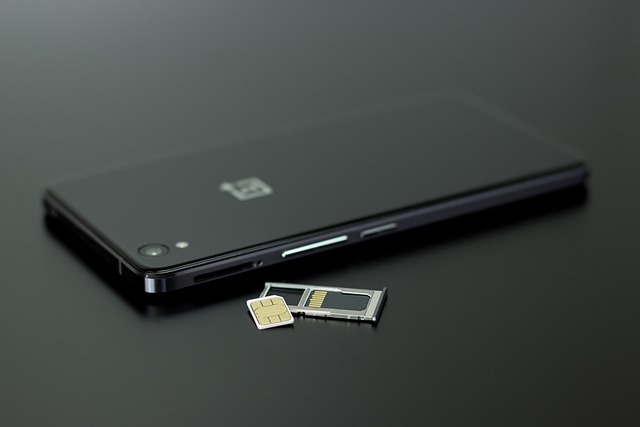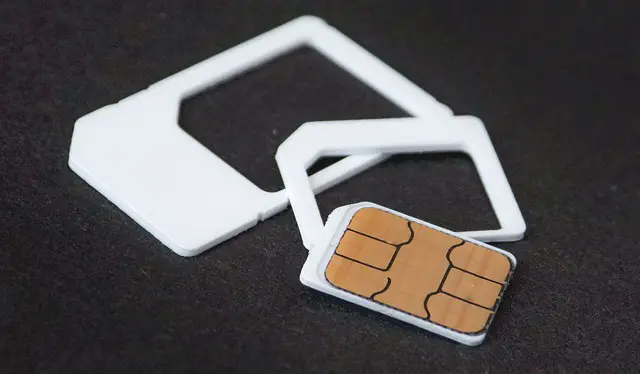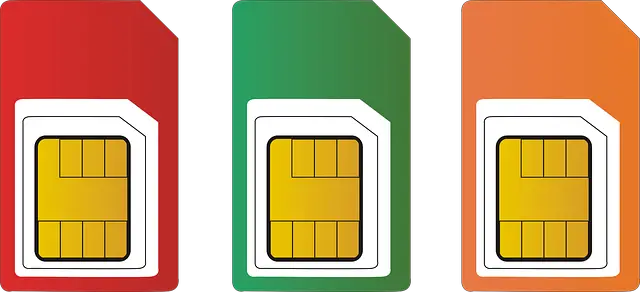If you value flexibility, control over your expenses, and minimal commitment, then a prepaid plan may suit you better. Conversely, if you prioritize convenience, unlimited usage options, and have steady income streams to support recurring bills, then a postpaid plan may be the way to go.
What is postpaid?
(Image by Pexels from Pixabay)

Postpaid plans are the traditional mobile phone plans where you pay a monthly bill for using the services. With postpaid plans, you get a fixed amount of data, talk time and SMS per month. The service provider usually carries out a credit check before approving your application for a postpaid plan.
One of the benefits of postpaid plans is that they offer convenience since you don’t have to worry about recharging your account regularly. Additionally, with some postpaid plans, unused data may be carried over to the next billing cycle.
However, with postpaid plans come more restrictions as compared to prepaid ones. For instance, if you exceed your monthly limit on data or SMS usage, then additional charges will apply in most cases. Furthermore, some providers may charge extra fees if you want to end your contract earlier than agreed upon.
Choosing between prepaid and postpaid depends on individual preferences and budget constraints. If convenience is crucial for someone who doesn’t mind paying extra charges at times when exceeding their limits but wants uninterrupted services without worrying about recharge dates – then Post-paid would be an ideal choice!
What is prepaid?

Prepaid is a type of mobile phone plan that requires the user to pay for their services in advance. It is different from postpaid plans where customers receive a bill at the end of each month.
One of the main benefits of prepaid plans is their flexibility. Users can choose how much they want to spend, and only pay for what they need, making them an excellent option for those on a tight budget or who don’t want to commit themselves to long-term contracts.
Another advantage of these plans is that they often come with no credit checks. This means people with bad credit scores are more likely to be approved than with postpaid plans which require a good credit rating.
Prepaid users also have control over their usage amount, as it allows them to monitor and manage their data consumption better, avoiding extra charges or penalties.
However, there are some downsides too. Prepaid usually has higher rates per minute/text compared to postpaid. Also, prepaid providers may limit available features like roaming or international calls unless you upgrade your plan or pay additional fees.
If you’re looking for greater flexibility and budget control without worrying about overage charges or getting locked into lengthy contracts then prepaid might be an ideal choice for you!
Postpaid Vs. Prepaid – Key Differences
Postpaid and prepaid are two types of mobile phone plans that differ in several aspects. With postpaid, you pay for the service after using it while with prepaid, you pay before using it. Postpaid plans usually involve a contract between the subscriber and the carrier, whereas prepaid doesn’t require signing any commitment.
In postpaid plans, bills arrive at regular intervals (usually monthly), based on usage within the billing period. In contrast, prepaid allows users to buy specific amounts of data or minutes upfront and make use of them until they run out.
One significant difference is that postpaid packages often have more extensive coverage than their prepaid counterparts. This means subscribers can enjoy more access to different network areas nationwide without being charged extra fees unless roaming outside their home country.
Prepaid packages typically offer more flexibility when it comes to controlling usage expenses since there’s no risk of overspending as one pays upfront for only what they need.
Another critical aspect where these two differ greatly is credit checks; most carriers would conduct an examination before approving anyone for a postpaid plan due to higher risks involved in terms of missed payments versus prepaying where credit score isn’t always considered.
Both types come with pros and cons that depend on personal needs/preferences such as budget control vs extended coverage range etc., which makes choosing either somewhat subjective.
How to choose the right postpaid or prepaid plan for you
Choosing the right mobile plan can be overwhelming, especially with the variety of options available in today’s market. Both postpaid and prepaid plans have their advantages and disadvantages, which makes it important to understand your usage needs before making a decision.
If you are someone who needs a consistent amount of data, calls and texts every month, then postpaid might be the better option for you. Postpaid plans usually offer unlimited data or fixed amounts at high speeds that don’t slow down when used up.
On the other hand, if you’re looking for more control over what you spend on your mobile bill each month or want to avoid long-term contracts, then prepaid might suit your needs better. Most prepaid packages come with an expiration date after which all unused allowances disappear – this could work well if your phone usage differs from one month to another.
When considering either package type make sure to consider factors like coverage availability in places where you frequent often such as home or work locations. Some providers may also offer special deals like discounts on bundled services such as home internet connections.
Ultimately choosing between a postpaid or prepaid plan comes down to personal preferences. Take time assessing what works best based on how much money is spent monthly; keep track of any additional fees that need consideration before signing up for service!
Advantages and disadvantages of Postpaid packages
Postpaid packages are a popular choice for those who want to stay connected without worrying about running out of credit. One of the biggest advantages is that you only pay for what you use, making it easier to budget and manage your expenses. This means that you can make calls, send texts or use data as much as you like without having to keep topping up.
Another advantage of postpaid packages is that they often come with additional services such as free roaming or international calling options which can be useful if you travel frequently. Additionally, many providers offer loyalty rewards and discounts on multiple connections which can help save money in the long run.
However, there are also some disadvantages to choosing a postpaid package. The biggest downside is that bills may become unpredictable if usage exceeds the plan’s allowance resulting in overage charges. Furthermore, contracts typically last for at least a year and early termination fees could apply should one decide to cancel before its expiration date.
When considering whether postpaid is right for you it’s important to weigh up both the pros and cons before making a decision based on your needs and usage habits.
Advantages and disadvantages of Prepaid packages
Prepaid packages have gained immense popularity in recent years. They offer customers the flexibility to control their mobile expenses and usage. Here are some advantages and disadvantages of prepaid packages.
Firstly, prepaid plans do not require a credit check or contract commitment, making them more accessible for all people without any limitations. Secondly, they provide cost-effective options with fixed limits on data usage, minutes of calls or messages sent per day, week or month. Thirdly, there is no risk of surprise bills as you can only use what you paid for upfront.
Moreover, prepaid plans allow customers to switch carriers more easily without cancellation fees since there’s no long-term agreement required. You also have the freedom to choose when and how much you want to recharge your phone plan based on your budget.
However, one disadvantage is that if you exceed the limit before recharging it again then services may be temporarily suspended until payment is made which could cause inconvenience at times when an urgent call needs to be made.
Additionally purchasing new SIM cards every time can become tedious instead longer validity periods would make things easier; therefore many companies offer monthly top-up options while still retaining flexibility among users who prefer shorter duration plans based on their specific needs
Prepaid versus Post-paid depends largely on personal preference and individual requirements but weighing up these benefits will help decide whether a prepaid package suits better than postpaid depending upon customer’s lifestyle choice!
Featured Image By – Narcis Ciocan from Pixabay








